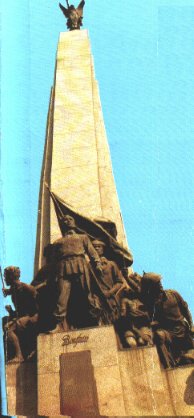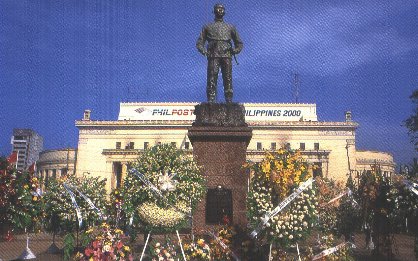

 |
Today the Filipino nation
honors Andres Bonifacio as the "Father of the Philippine
Revolution." He was a leader who believed that the common could be organized and put into action. Indeed he was not disappointed for he found good patriots among them. Many were even willing to die for their country. Despite his poverty and lack of education, Bonifacio went beyond the steps taken by the educated and moneyed class of Filipinos pushing for peaceful change. Eventually even reformers such as Apolinario Mabini and Marcelo H. del Pilar realized that freedom could not be won from Spain without use of force. To this day historians argue
whether Bonifacio or Rizal was right. In June 1896
Had Bonifacio listened to
Rizal, there probably would have been no revolution.
- Dr Isagani R. Medina
|
Andres Bonifacio was part
of an era when there was a tremendous outpouring of love for the motherland,
when
patriotism was not just a concept but a way of life,
when there was profusion of heroism and when the larger interests
of the country would come first. Those finest
hours in our nation’s history were the collective achievement of a number
of brave souls: the secular priests—Gomez,
Burgos and Zamora—who fought for racial equality; the articulate Filipino
propagandists in Spain who wrote of colonial abuses
in the islands; the brilliant Rizal who gave the Filipino people a
clear mirror for them to see a reflection of the
national soul; the enterprising and self-motivating Bonifacio who found
the mechanism with which the nation could reaffirm
its sense of self and regain its freedom; and many more who had
willingly sacrificed comfort and security for the
nation’s good.
At that distant point in
time, the Filipino came into being. The people began to look back
to a common past of
hardworking ancestors. They dad the same tragic
experience and had to fight one and the same enemy. And they
shared a common dream—to become one indivisible
and independent nation.
Bonifacio did his best to
make that dream come true. He died without seeing the new dawn he
had fought for.
To the very end, he was faithful to the ideal that
gave nobility to his unfinished Revolution
- Alejo L. Villanueva, Jr.
Bonifacio's Unfinished Revolution
